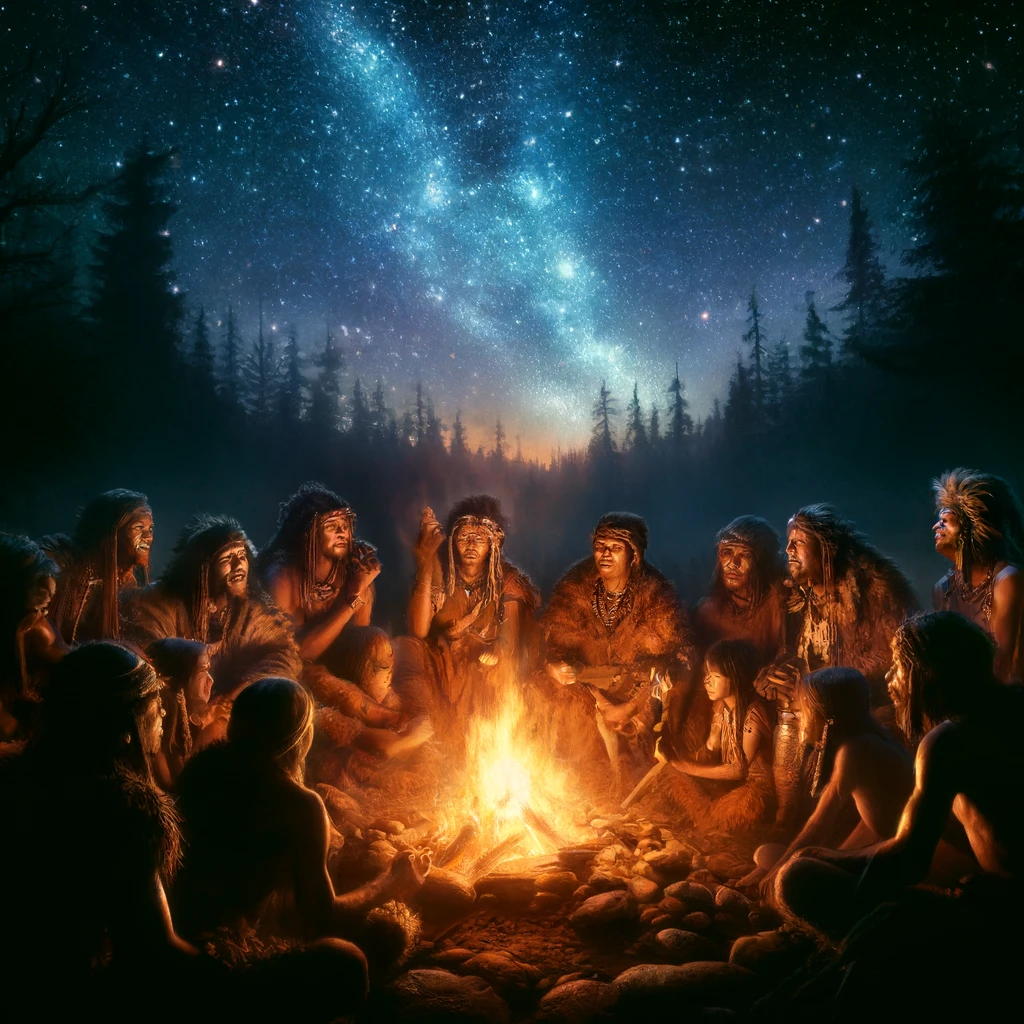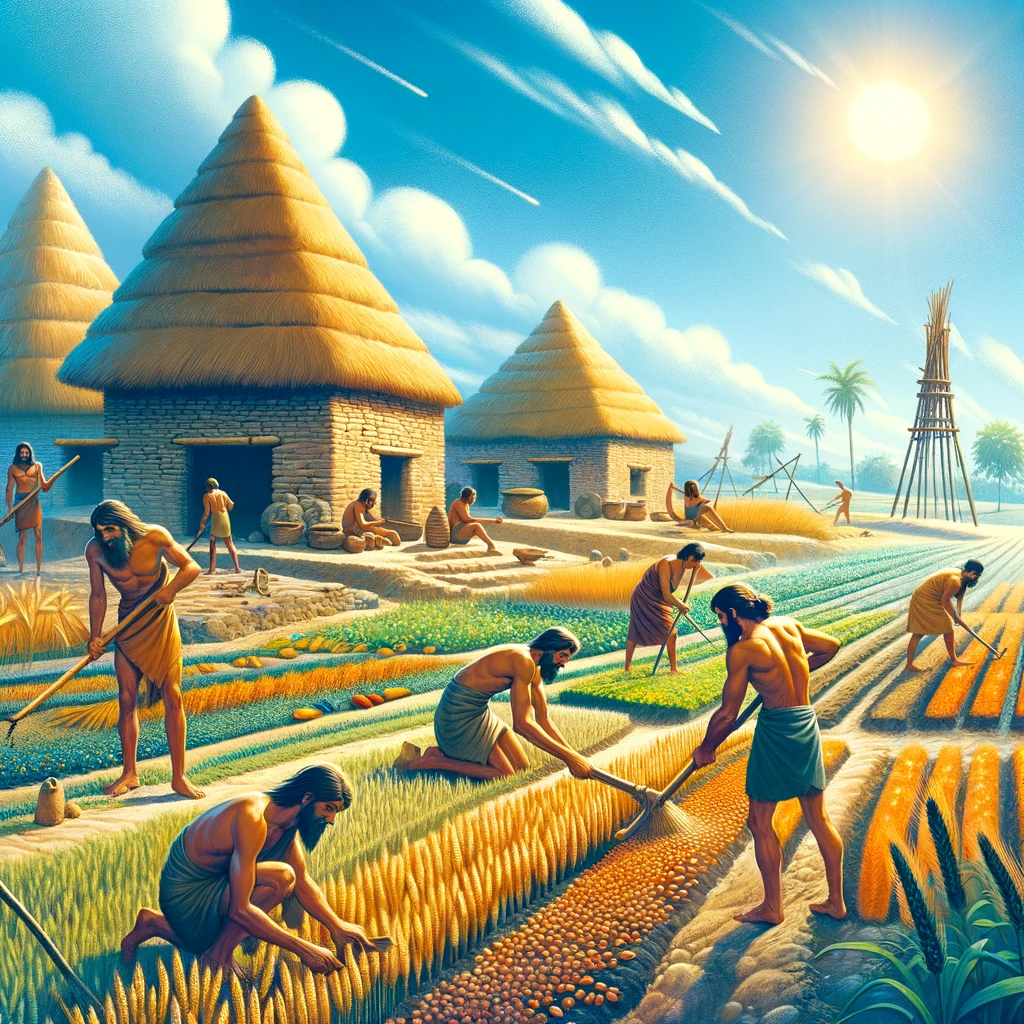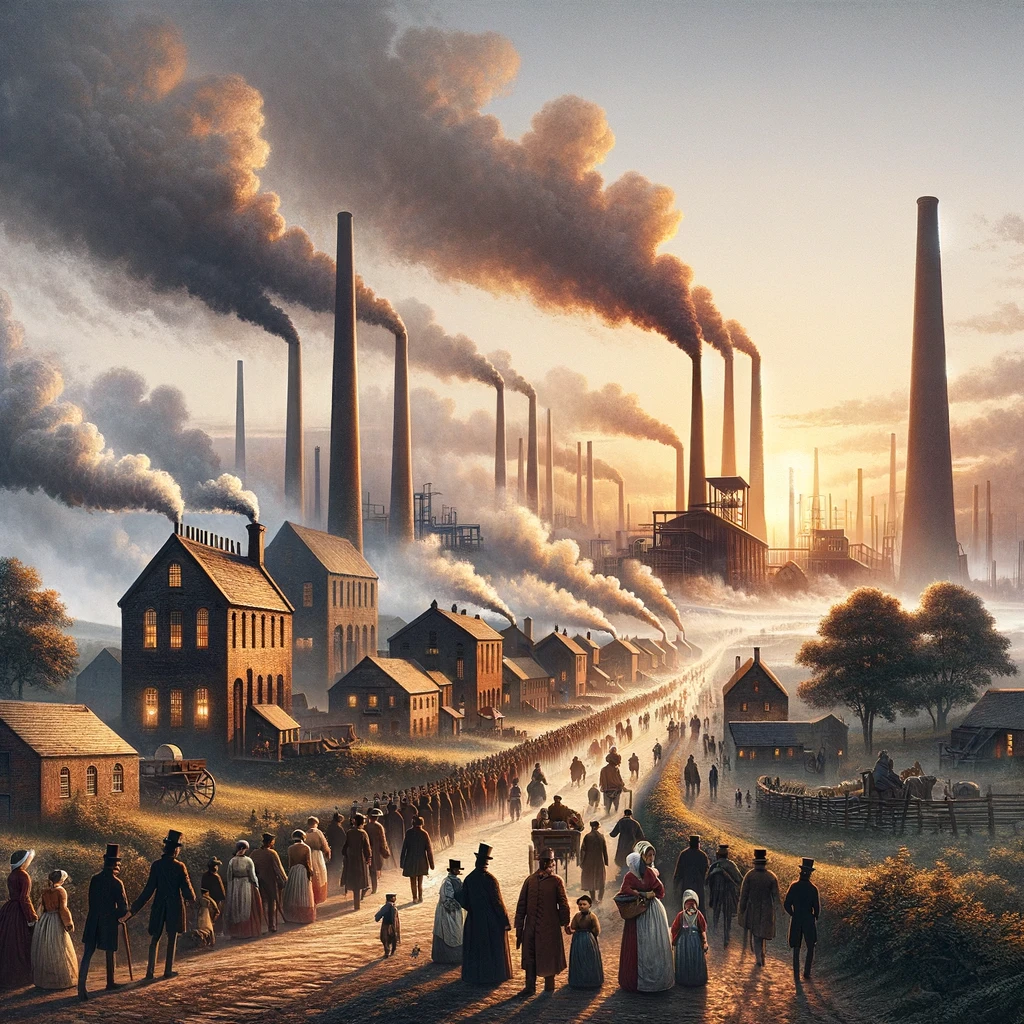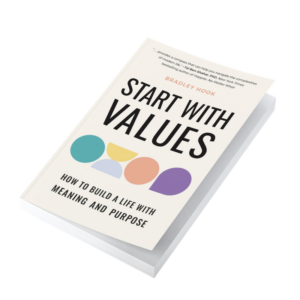Sometimes, being alive can feel lonely, daunting, alien, or beyond our control. We think we were born into this world as if we came from someplace else. But this is not true. Alan Watts, the philosopher and spiritual entertainer, proposed that just as an apple tree produces apples, planet Earth “peoples.”
If you’re willing to zoom out, you could even speculate that our entire universe produces people—and we are tiny apertures through which the universe observes itself.
For much of our history, human core values closely matched the values of life and living organisms, namely:
- Self-preservation: The innate drive for self-preservation is at every living entity’s core. This value propels an organism’s quest for essential resources, such as food and shelter, and its instinct to evade threats. Here lies the basic tenet for survival—an organism must protect and sustain its own life.
- Reproduction: Beyond mere survival, life is about lineage—passing genetic material to successive generations. Reproduction is vital for species continuation and involves elaborate strategies, rituals, and behaviors to secure a mate and produce offspring.
- Adaptation: Adaptation is a testament to life’s resilience. It allows organisms to modify themselves in response to changing environments. This continual adjustment, honed by natural selection, fuels the spectacular diversity of life on Earth.
- Homeostasis: The internal equilibrium, or homeostasis, is paramount. Living organisms perpetually adjust physiological processes to maintain a stable internal environment. This delicate balance supports cellular functions and overall health.
- Cooperation: Although competition is often highlighted in nature, cooperation is equally seminal. From symbiotic relationships between species to complex social structures within animal groups, collaborative interactions are abundant and beneficial, enhancing chances of survival and reproduction.
- Energy Conservation: Life is a masterful energy economist. Every organism, from a single cell to a complex creature, has evolved strategies to optimize energy use. This efficiency, illustrated by behaviors such as torpor or hibernation, is essential for enduring periods of scarcity.
For our ancestors, catching an animal, hugging a loved one who returned safely, or discovering a fruit tree laden with gifts would have given great joy — and meaning — to life.
However, as we trace the arc of human history, we find that our core values evolved significantly, adapting to the ever-changing landscape of our species’ life and culture. From hunter-gatherers to early agrarian cultures and later to our interconnected global society, the definition of ‘valuable’ has shifted, reflecting our external circumstances and our internal perceptions of what matters most.
Nevertheless, our primal survival values are always accessible, and they are quickly activated in emergency situations. Someone in the midst of an earthquake will, of course, not be thinking about higher-level values like innovation or prestige. Most important will be self-preservation, safety, and homeostasis to restore the balance between one’s internal and external environment. Gradually, after the earthquake has passed and survival values are satisfied, the individual may begin, once more, to explore higher-level values to satisfy the need for personal growth and meaning. Their higher-level values may even have changed because of the catastrophic event. They often do.
Let’s explore how values have shifted across human history.
Hunter-Gatherer Societies
In the time of our hunter-gatherer ancestors, core values were intimately tied to survival and community. Cooperation was essential for survival; without it, tackling challenges such as hunting large game and defending against threats would have been daunting. Sharing was a core value—what was caught or found was distributed within the group, as everyone depended on the collective well-being.
Respect for nature was inherent; the Earth was likely seen not as a resource but as a complex system that humans were a part of. Rivers, mountains, stars, and the sun were regarded as gods and demons and worshipped or feared as such.

Agricultural Revolution
With the dawn of agriculture, human societies grew in size and complexity, and our values shifted accordingly. The accumulation of resources such as land, crops, and, later, money became central as stability and predictability were favored over nomadic life. This shift also saw the emergence of hierarchies and social classes and, with them, the increasing value placed on authority and social order.
Spirituality often became more structured during this period, with organized religions—including the worship of kings or pharaohs—reflecting and reinforcing societal values. Paradoxically, while this era marked heightened social interconnectivity, it also signaled a growing detachment from nature, which may have been viewed as a domain to conquer or exploit.

Industrial Revolution to Modern Times
As societies transitioned towards industrialization and urbanization, there was a marked shift towards valuing efficiency, innovation, and progress. Individualism began to eclipse the community-centric values that characterized earlier eras. The benchmarks of success, increasingly defined by material wealth and societal standing, evolved, making competition a prevailing social force. Concurrently, knowledge and education gained prominence, often seen as essential tools for both personal and societal upliftment.

For many, traditional religious beliefs gave way to a more scientific worldview, and we see an ever-widening detachment from nature and our food sources. Despite the challenges, there have been significant strides; for instance, a five-year-old in England in 1841 had a life expectancy of 55 years, which has now extended to 82 years.
However, longevity doesn’t necessarily equate to a healthier life. Modern ailments, from obesity to mental health disorders, pose new challenges. Disturbingly, in the US, life expectancy has recently declined, with issues like a 35% rise in suicides and a tripling of fatal drug overdoses between 1999 and 2019 highlighting deeper societal concerns. Such statistics reflect the struggles many face in finding meaning and fulfillment. Compounding this, a 2023 study highlighted that one-quarter of adults feel lonely.

Contemporary Reflection
We see a complex web of values underpinning the motivations of politicians, corporations, individuals, and activists. It is important to recognize that shifts in core values are not historical facts but are lived realities influencing our behavior, institutions, and relationships. While some values have caused hardship and suffering, they also have enabled us—you and me—to be here with the space and time to contemplate the concept of values.
People always think that they’re living in cataclysmic times. Since I was a child, the news has woven neverending stories of imminent disaster, whether from disease, terror, economic collapse, or war. I’m not sure about you, but it feels like we might already be in a dystopian future. Look at the growing divide between rich and poor, rampant corruption, industries making huge profits from war or human sickness, and left versus right ideologies—rather than values—driving critical decisions. What about AI? What are its values?
We are at a critical moment, at least in the context of our lives. Will we remain distracted by the noise, blindly following short-term thinking, as we edge apathetically towards global war? Albert Einstein is often quoted as saying, “I know not with what weapons World War III will be fought, but World War IV will be fought with sticks and stones.” The Bhagavad Ghita, central to Hinduism, predicts a war to end all wars, heralding the Kali Yuga, a dark time before humanity—and all existence—is razed by the god Shiva. On the flip side, astrologists say we’re entering the Age of Aquarius, which is supposed to be an era of peace and love. But these, just like many scientific predictions about the world, are just perspectives.

We create our shared reality, so instead of being overwhelmed by complexity or lured into “doomscrolling,” each of us needs to identify what we can directly control. It might be as simple as our thoughts, emotional state, words, and actions. Remember, every action has a ripple effect. And ripples meet, collide, and rebound, creating waves. Can we challenge ourselves to ask: what are our core values today? Are they remnants of the societies we were born into or conscious choices that guide our actions? And as we look towards an uncertain future, we are prompted to ask: what values will we need to navigate the path ahead?
Moving forward, we might find wisdom in reaching back, integrating our hunter-gatherer ancestors’ communal and ecological wisdom with the innovation and dynamism that have driven our more recent history. This integration may hold the key to creating a future that honors human flourishing and the health of our home planet.


